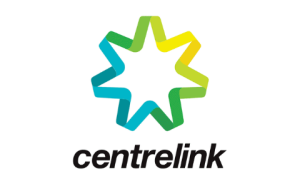
Article appeared in the Australian Financial Review 14/3/2020.
https://www.afr.com/wealth/personal-finance/why-everyone-should-have-an-advance-care-directive-20200310-p548gu
A move into residential aged care can be stressful enough without having to
confront the task of completing an advance care directive. It feels like an indirect way of saying “you are going to die here so you may as well as tell us how you want to go”.
However, an advance care directive is a great tool and everyone should have
one – regardless of age or health status – particularly if you have a firm
view of what a good quality of life looks like to you and you are relying on
someone to make sure your wishes are carried out.
But the day you enter aged care or hospital shouldn’t be the trigger point for
documenting or even discussing the sort of healthcare you want in the event you can’t speak for yourself.
An advance care directive is something that everyone living in aged care
should have. This may be important in the context of the current concern around COVID-19 and the impact of the virus on aged care homes – including how prepared they are for an outbreak and whether they have the necessary resources and a skilled workforce able to manage any such event.
Apart from vulnerable aged residents in care, aged care workers are just as
likely to contract the virus – although perhaps less likely to succumb to it as
long as they are fit and healthy.
Advance care planning has been slowly gaining momentum in recent years as hospitals and health authorities see the virtue in having a document stating a person’s preferences for end of life or medical treatment.
The third National Advance Care Planning week, being held from March 23 to 27, is an initiative introduced by Advance Care Planning Australia, which is funded by the Department of Health. It is a body that encourages all Australians, regardless of their age or health, to make their future health care preferences known.
The initiative challenges people to discuss what living well means to them
and to consider who they would want to speak for them if they were too sick
to speak for themselves.
Starting the conversation about what sort of medical intervention you would want can come in many forms.
An advance care directive is a legal document that can give a sense of certainty and control as your health declines.
However, for an advance care directive to be legally binding, the person completing it has to be competent and it must be signed by a GP or health professional and a witness.
There are different forms to be completed by those acting on behalf of someone who may have lost the capacity to express their wishes, but they won’t be legally binding.
What you do with your completed directive is up to you. You can carry it with you, give a copy to your GP and local hospital, and / or upload it to the central health database My Health Care Record through MyGov.
If you have appointed a decision-maker, they should know that you have an
advance care directive in place and where to find it.
According to End of Life Directions for Aged Care (ELDAC), generally, a health professional must follow a valid directive, even if it instructs them to refuse life-sustaining treatment, which will result in a person’s death.
If they do not follow the instructions, a health professional could be liable under criminal or civil law.
There are some limited circumstances in which a directive does not have to be followed, such as when it is too uncertain to guide decision-making or where circumstances have changed so much since completing the directive that it should not be followed.
Shock approach
The law on this differs across Australia. Starting the conversation about what sort of medical intervention you would want can come in many forms.
There is the shock approach. Just say you were in a coma following a car accident. Would you be OK being kept alive by machines? Or, you have a terminal illness, and if medical treatment could delay your death by two months, would you want it?
It matters how you express your answer in a directive.
CPR is one treatment people are often asked if they want used in case their heart or breathing suddenly stops. It makes sense if there is someone close by who knows first aid and that they should push hard on the chest to get the lungs going again.
Unfortunately, the chest pumping action is not quite what we see in the movies where the recipient jumps to life. Rather, CPR can often be a life-prolonging treatment rather than a quick start to full recovery.
If CPR is not started and done properly within about five minutes of the stoppage of the heart or breathing, there could be permanent brain damage. Even if CPR is started early and done correctly, it often doesn’t work. Fewer than one in five people who receive CPR survive and return to their previous normal life and normal level of function.
Not surprisingly the likelihood of success is much lower for an older person or someone with a serious illness or dementia.
An instructional directive such as “I don’t want CPR” or “I don’t want to be tube-fed” is one way of looking at advance care planning.
Thinking about what is important to you or what living well looks like to you are other conversation starters.
Before you start thinking “it will never happen to me” and “I don’t need one of those”, consider the statistics: 50 per cent of people will not be well enough to make their own end-of-life medical decisions and one-third of us will die before the age of 75, most likely after a chronic illness rather than a sudden death.
Research also shows that advance care planning can reduce anxiety, depression and stress in families. Family members who know a directive is being followed are also more likely to be satisfied with their loved one’s care.
Fewer than 15 per cent of Australians have documented their end of life wishes in an advance care directive. Most of us have a clear view of what is important to live well or what we value in life. Now, all we have to do is share that – preferably in writing; even better if it is outlined in a legal document relevant to your state or territory.
Bina Brown is director of aged care solutions company Third Age Matters.
Thirdagematters.com.au






